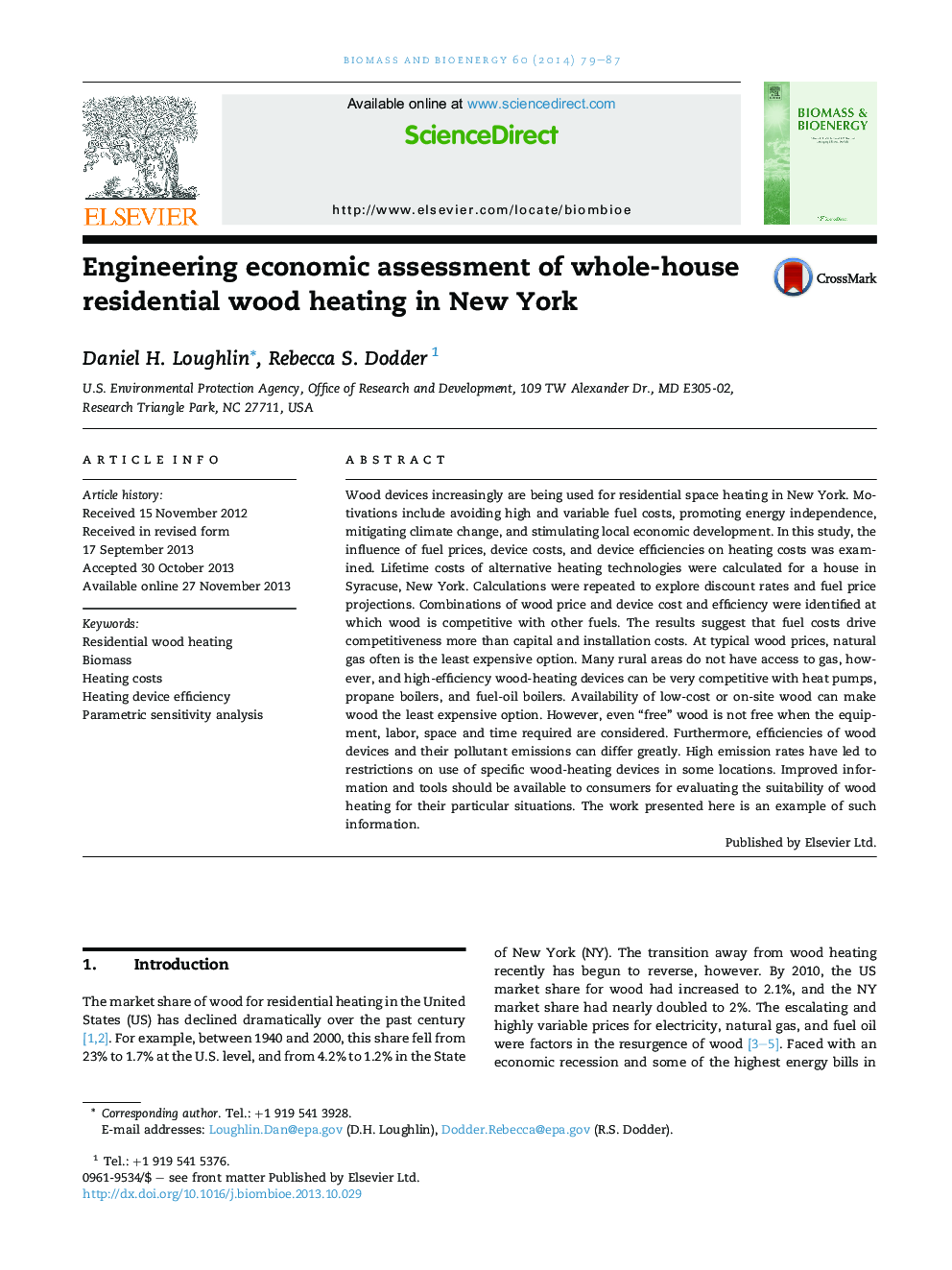| Article ID | Journal | Published Year | Pages | File Type |
|---|---|---|---|---|
| 676852 | Biomass and Bioenergy | 2014 | 9 Pages |
•Fuel costs affect the competitiveness of whole-house residential space heating options.•Wood can yield lower lifetime costs at low wood prices and high device efficiencies.•Heterogeneity in wood price and device efficiency complicate this comparison.•Consumers would benefit from tools conveying relative costs and impacts of wood heat.
Wood devices increasingly are being used for residential space heating in New York. Motivations include avoiding high and variable fuel costs, promoting energy independence, mitigating climate change, and stimulating local economic development. In this study, the influence of fuel prices, device costs, and device efficiencies on heating costs was examined. Lifetime costs of alternative heating technologies were calculated for a house in Syracuse, New York. Calculations were repeated to explore discount rates and fuel price projections. Combinations of wood price and device cost and efficiency were identified at which wood is competitive with other fuels. The results suggest that fuel costs drive competitiveness more than capital and installation costs. At typical wood prices, natural gas often is the least expensive option. Many rural areas do not have access to gas, however, and high-efficiency wood-heating devices can be very competitive with heat pumps, propane boilers, and fuel-oil boilers. Availability of low-cost or on-site wood can make wood the least expensive option. However, even “free” wood is not free when the equipment, labor, space and time required are considered. Furthermore, efficiencies of wood devices and their pollutant emissions can differ greatly. High emission rates have led to restrictions on use of specific wood-heating devices in some locations. Improved information and tools should be available to consumers for evaluating the suitability of wood heating for their particular situations. The work presented here is an example of such information.
Graphical abstractEfficiencies at which a whole-house residential wood heating device has an equivalent lifetime net present value of costs compared to a natural gas boiler and to a fuel oil boiler. Calculations are based on a 232 m2 (2500 ft2) house in Syracuse, New York.Figure optionsDownload full-size imageDownload as PowerPoint slide
